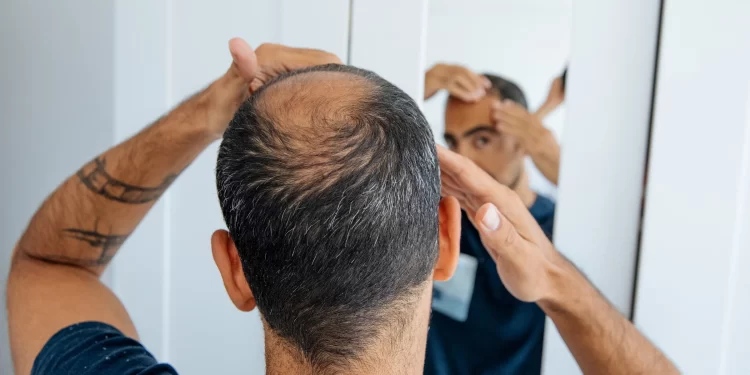How Low Testosterone Can Affect Your Body and How To Treat It?

Testosterone is a hormone produced primarily in the testicles in men and in the ovaries in women. It is responsible for many important functions in the body including muscle growth, bone density, and sex drive. Low testosterone, also known as hypogonadism, occurs when the body produces insufficient amounts of testosterone. This can result in a range of symptoms and health problems, including those related to sexual function which can be treated with medicines like Cenforce 150 and Vidalista 40.
Causes of Low Testosterone
- Age: Testosterone levels naturally decline as a man gets older. This decline is a normal part of aging and is called andropause.
- Injury or illness: Certain medical conditions, such as an injury to the testicles or an infection, can cause a decrease in testosterone production. Chronic illnesses, like diabetes and obesity, can also contribute to low testosterone levels.
- Medications: Some medications, such as opioids and glucocorticoids, can have a negative impact on testosterone production.
- Lifestyle factors: Certain lifestyle factors, such as a poor diet, lack of exercise, and excessive alcohol consumption, can contribute to low testosterone levels.
- Testicular damage: Testicular damage, such as from an injury, can lead to a decrease in testosterone production.
- Tumors: Rarely, tumors in the pituitary gland or hypothalamus can disrupt the normal regulation of testosterone production.
- Klinefelter syndrome: This is a genetic condition in which a man has an extra X chromosome, which can lead to a decrease in testosterone production.
The Impact of Low Testosterone on the Body
- Fatigue and Decreased Energy Levels: Low testosterone levels can result in fatigue and a lack of energy. This can make it difficult to perform even basic tasks and can impact daily life.
- Muscle Loss and Decreased Strength: Testosterone plays a key role in muscle growth and strength. Low levels of testosterone can lead to muscle loss and decreased strength, making it harder to perform physical activity.
- Decreased Sex Drive: Low testosterone levels are often associated with decreased sex drive and erectile dysfunction. This can lead to relationship problems and a decrease in overall quality of life.
- Depression and Anxiety: Low testosterone levels can also result in feelings of depression and anxiety. This can further impact overall health and well-being.
- Osteoporosis: Testosterone is important for maintaining strong bones. Low testosterone levels can result in osteoporosis, or a loss of bone density, which can lead to an increased risk of fractures.
Treating Low Testosterone
There are several treatments available for low testosterone, including testosterone replacement therapy, lifestyle changes, and dietary changes.
- Testosterone Replacement Therapy: Testosterone replacement therapy involves taking testosterone in the form of a gel, patch, or injection. This treatment can help to restore normal levels of testosterone in the body and relieve symptoms of low testosterone.
- Lifestyle Changes: Lifestyle changes, such as exercise and stress management, can also help to improve testosterone levels. Exercise can help to increase muscle mass and strength, while stress management can help to reduce levels of cortisol, a hormone that can suppress testosterone production.
- Dietary Changes: A balanced diet that includes foods high in zinc and magnesium can also help to improve testosterone levels. Zinc and magnesium are important minerals for testosterone production and should be included in the diet.
Low testosterone levels can result in a range of symptoms and health problems, including those related to sexual function. It is important to seek treatment for low testosterone in order to restore normal levels of testosterone in the body and improve overall health and well-being. Treatments such as testosterone replacement therapy, lifestyle changes, dietary changes, and medicines like Fildena 150 and Tadalista 20 can all help to improve testosterone levels and relieve symptoms of low testosterone.






